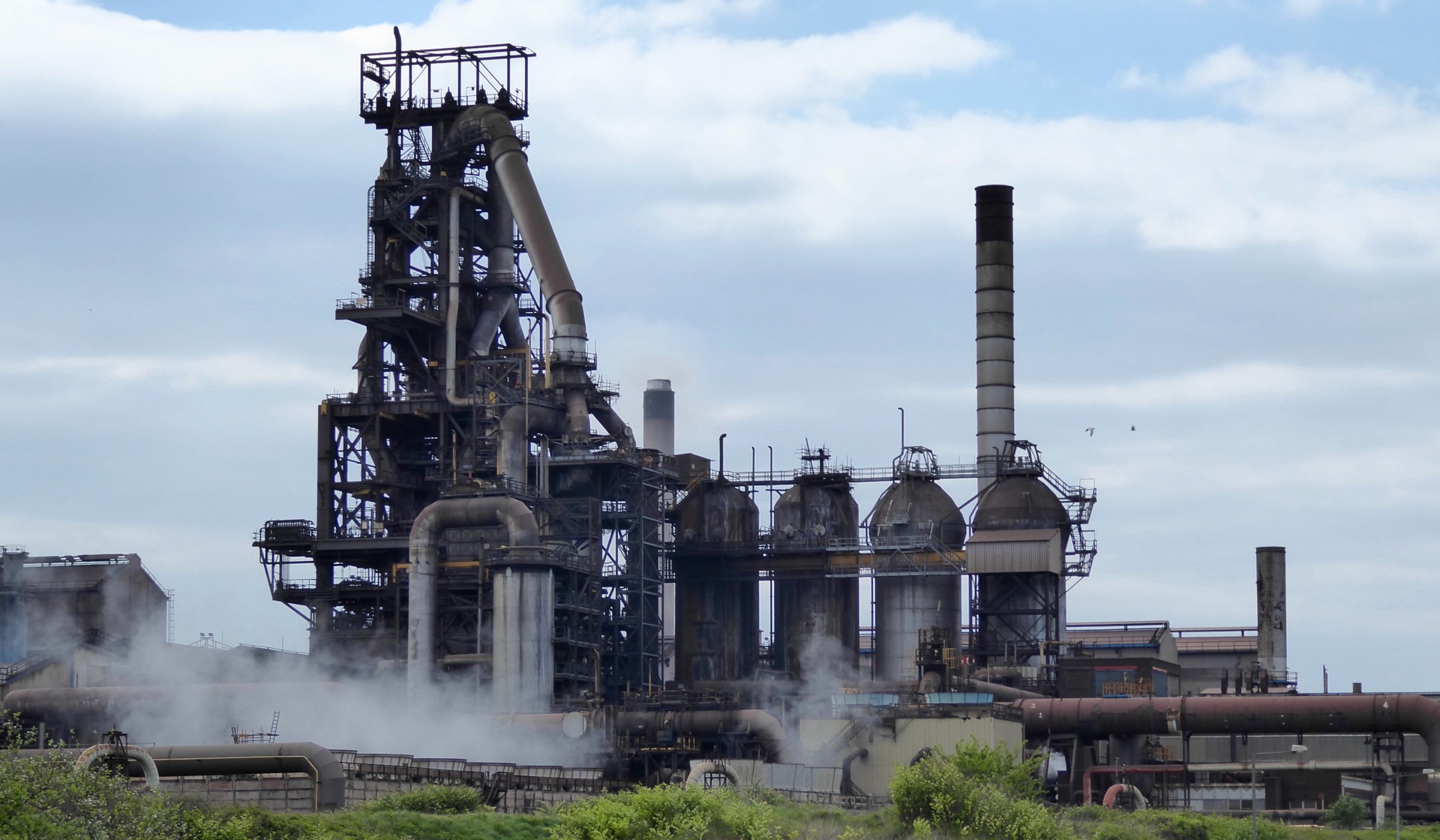
 |
||||
|---|---|---|---|---|
| Volume 54 Number 2, February 10, 2024 | ARCHIVE | HOME | JBCENTRE | SUBSCRIBE |

Port Talbot steel works - Photo: Phil Beard / Flickr / CC BY 2.0
Multinational conglomerate Tata confirmed in January plans to close its two blast furnaces at the massive Port Talbot site in Wales, threatening some 2,800 jobs and the devastation of the local community, with 300 additional jobs being under threat at Llanwern.
Tata's executives absurdly complain that, while the business has been "an incredibly patient investor" in steel, they have made no profit since acquiring the plants in 2007. The company plans to replace some of its Bessemer furnaces with a new electric arc furnace, and switch from producing new virgin steel to recycling scrap steel, reckoning it cheaper to produce. Until such time that the electric arc furnace is operational, planned for 2027, the company intends to import semi-finished steel slabs from India and the Netherlands.
The announcement comes after Tata indicated its intentions earlier last year, and in part is aimed at pressurising the government to provide hundreds of millions or even billions in pay-the-rich schemes euphemistically called subsidies to bolster its accumulation of wealth and rate of return while diminishing the risks borne by itself.
In the House of Commons, at the Welsh affairs committee on January 31, Tata Steel's global CEO, T V Narendran, and British CEO, Rajesh Nair, attempted to wriggle out of the quandary by declaring their openness to invest in a new direct reduced iron plant if only they would receive such additional public money.
In a document recently sent to workers and the government, Tata Steel said that "with the right investment and policy environment, it is open to further investment, such as in a direct reduced iron (DRI) plant. We would look at the case for a potential DRI plant in the UK if the business conditions are right and, if in future, the government supported further investment." [1]
Labour, for its part, has said that it will force a parliamentary vote on the future of the British steel industry and plans to invest £3bn in the steel industry with hydrogen steelmaking as an option. In short, their policy is to bolster the Tata position all along the line.

Port Talbot steel workers outside the plant - Photo:
NSSN
Who is this "incredibly patient investor" making "no profit"? Tata alleges that Port Talbot is losing £1m every day. The fact is that the workers at Port Talbot create a massive amount of new value in producing this critical basic material that is ubiquitous in the modern socialised economy. This new value gets appropriated in the main by various sections of the owners of capital, including the owners of Tata's huge debt and equity. Tata bought the plants at Port Talbot at low price, accumulated vast sums out of the value created by its labour force, but now wants to ditch assets and switch to what it sees as a means to offset the falling rate of return on its patiently-made investments. They have no other interest. Talk of the environment is only an attempt to greenwash the impact of their destructive act on labour, livelihoods, and skills.
The plant employs half of Tata Steel's 8,000-strong workforce in Britain; 2,500 are to be made redundant in less than 18 months. The stance of this huge monopoly is to destroy what it cannot control. It is a means to force further tribute to be paid, or workers and communities will face devastation with all its chaotic consequences.
It is the global capitalists and imperialists who are causing chaos by closing markets, restricting trade, and stifling supply chains. They can offer no solutions to diminishing resources and the crisis in extraction, instead destroying productive forces and skills, not to mention the effects of the wars of destruction that are an increasingly defining feature of the present.
Competing private interests are too narrow to be able to provide solutions to the crisis and seek alternatives that pay heed to the relations between human beings and their social and natural environment. There are only temporary measures, demands for ever-increasing finance and empty promises. Though unions have put forward a serious plan to keep the plant running during a period of transition, the company has simply rejected this as not "affordable". Meanwhile, the fate of the community around this massive plant, which is the size of a town, hangs in the balance.
The workers and their communities are faced with what to do. How should they defend themselves? Are they simply to face their masters with stoicism? On January 23, workers demonstrated outside Westminster, and are now considering strike action. The workers know that it is they themselves who hold the solutions. They know the value of their labour, and know that the solution is not destruction. They demand that production be maintained, the plant be kept open, and that this be a basis for seeking alternatives and safeguarding their future. The maintenance of labour, payment of wages, and preservation of skills are the immediate concern. They cannot be simply cast aside and abandoned. They have their claims! They have a right to a say in such crucial matters that affect their lives! Enough is Enough!
Notes
1. Jasper Jolly and Alex Lawson, "Tata Steel 'open to more UK investment'
despite Port Talbot job cuts", The Guardian, January 28, 2024
https://www.theguardian.com/business/2024/jan/28/tata-steel-open-to-more-uk-investment-despite-port-talbot-job-cuts